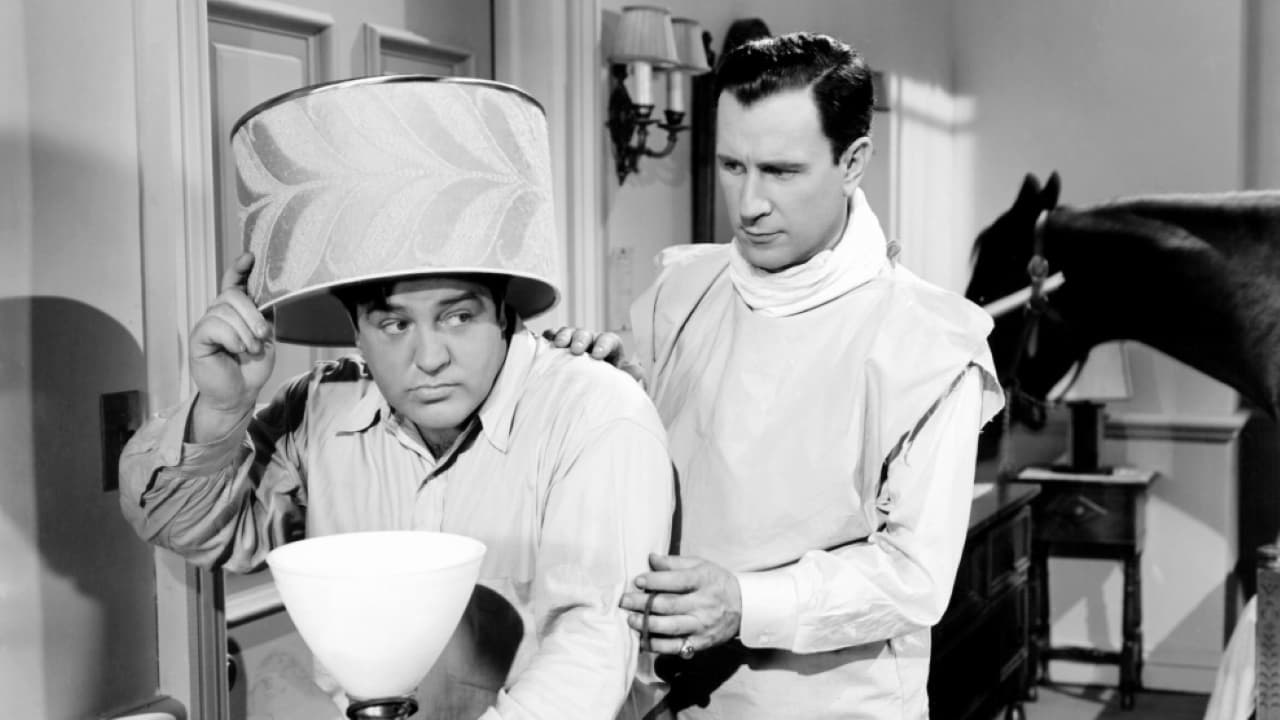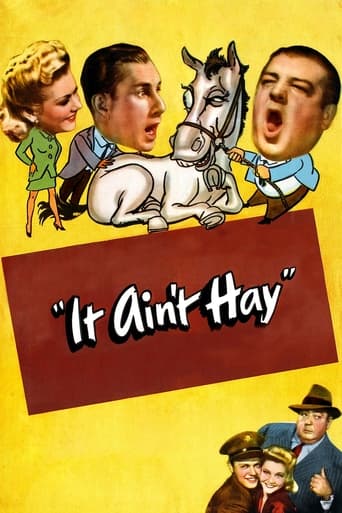

What makes it different from others?
... View MoreIt's not great by any means, but it's a pretty good movie that didn't leave me filled with regret for investing time in it.
... View MoreAll that we are seeing on the screen is happening with real people, real action sequences in the background, forcing the eye to watch as if we were there.
... View MoreThere are moments that feel comical, some horrific, and some downright inspiring but the tonal shifts hardly matter as the end results come to a film that's perfect for this time.
... View MoreAbbott and Costello are at their very best in this agreeable comedy. They play a couple of Manhattan taxi drivers with a fondness for a sweet young girl and her horse. Costello means well in trying to be nice to the animal, but his feeding it candy ultimately causes the horse to get sick - and die. So he and Abbott set out to make things right by getting a new horse for the girl, whose dad (Cecil Kellaway) runs a horse and carriage ride in the city. I know that synopsis sounds rather dramatic, but there is a lot of well-staged comedy between the serious moments. And Bud and Lou are as sharp in ever performing them. Some routines include: their classic "the horse eats his fodder", the boys getting swindled at a phony horse race outfit, Lou getting into trouble at a restaurant for not being able to pay his check, and other assorted gags. Third Stooge Shemp Howard also has a part, but the real fun comes courtesy of fat man Eugene Palette, who is the perfect foil for Costello's antics. As with almost all of A&C's movie of this period, there is some singing and dance numbers here; however, I find them to be rather entertaining and endurable this time out. *** out of ****
... View MoreAs Youngster this comedy team became no.1 with me.They were the best at their craft.Another of their great movies was A/C Meet Captain Kidd. Iam looking forward to it's release,thank you for allowing me to express,my opinion.How much I have enjoyed all A/C movies. Thank you much appreciated and keep up the fine job you people do. I am an avid fan of A/C movies. The collection I have of their movies is great to this point in time. Two of my real favorites are The Time of Their Lives and Pardon My Sarong. I also have some photos of them. Which I cherish very much.Eventually I hope to have all 37 of their movie collection.
... View MoreIt Ain't Hay (1943) ** 1/2 (out of 4) I can finally say I've seen every Abbott and Costello film. It took me a while but I finally track down a copy of this one, which hasn't ever been released on home video due to some sort of rights issue. In the film, Costello accidentally kills a little girl's horse so he sets out to get her a new one. After waiting so long to finally see this one it really didn't turn out to be anything overly special. There are still some good gags but nothing too classic, although an inside joke about Universal was pretty nice. The "horse eats its father" joke was a highlight as was another scene where the boys try to pull a fast one and sneak off without paying for their lunch. Shemp Howard co-stars but it's Eugene Palette who really steals the film.
... View MoreThe comedy team of Bud Abbott and Lou Costello were in their prime in the 1940's (particularly the early 1940's) and this offering from 1943 is very funny indeed. Based on a Damon Runyon story "Princess O'Hara" (and featuring some of the classic Runyon characters such as Harry the Horse), it's been tailored for the A & C brand of comedy, and features some of their funniest routines (the "mudder & fodder" exchange, which was repeated in their later film "The Noose Hangs High"; stealing the horse, the climactic horse race scene, etc.) Like most of their early features (with the notable exception of the great "Who Done It"), there's also the mandatory songs - they are a mild intrusion, but on their own merit are quite good. (These song numbers were a stock element in the Universal comedies at the time, so you just have to tolerate them, but, like in the Marx Brothers comedies, they did seem to be there just to "pad out" the running time.) There's also a gem of a supporting performance by the great character actor Eugene Palette.Unfortunately, "It Ain't Hay" is currently tied up in legal knots, which keeps it out of circulation at the present time. Due to this, it was not included in the great A & C collection released recently on DVD by MCA, nor has it been shown on television for many years. Hopefully these legal issues will be resolved, and this fine example of the great comedy duo's work will receive the distribution it deserves.
... View More